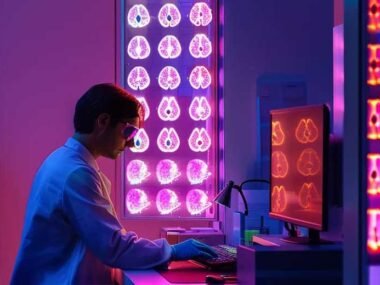A spinal cord injury (SCI) is often thought of as primarily affecting the spine and body movement, but the effects can extend far beyond these areas. The spinal cord and brain together make up the central nervous system (CNS), which controls nearly all bodily functions. Damage disrupts the communication between the body and the brain, resulting in a wide range of physical, sensory, and even cognitive consequences. Here’s a closer look at how such an injury affects the brain and impacts overall health.
Disruption of Communication Pathways
The spinal cord is essentially the brain’s primary communication highway to the body. It sends signals from the brain to the rest of the body and carries sensory information back to the brain for processing. When an SCI occurs, this pathway is either partially or completely disrupted, depending on the severity and location. A complete injury results in total loss of communication below the site, while an incomplete injury retains some degree of signal transmission.
This disruption impacts the brain’s ability to control movement, sensation, and autonomic functions like breathing, heart rate, and digestion. For instance, an injury in the upper spinal cord can impair the brain’s ability to send signals to muscles for breathing, potentially requiring mechanical assistance. Lower spinal cord injuries may affect bladder control, bowel movements, and sexual function, showing how extensively the brain’s communication with the body can be compromised.
Neuroplasticity and Brain Adaptation
One of the brain’s remarkable qualities is its ability to adapt, or neuroplasticity. After an SCI, the brain begins to adjust to the lack of incoming signals from the body below the area. In some cases, this adaptation may help the brain reassign functions to other pathways or create alternative neural connections. For example, in individuals with incomplete spinal cord injuries, physical rehabilitation can help the brain find new pathways to restore some motor or sensory functions, allowing for improved mobility and sensation.
However, neuroplasticity also has its limits. While the brain can adapt to a degree, it cannot completely restore the lost communication caused by severe or complete damage. Scientists and medical professionals are exploring ways to enhance neuroplasticity through advanced therapies and stem cell research, offering hope for more effective recovery strategies in the future.
Impact on Mental Health and Cognitive Function
The effects of an SCI often extend to mental health and cognitive function. The sudden and life-altering nature of such an injury can lead to emotional responses such as anxiety, depression, or post-traumatic stress disorder (PTSD). Studies have shown that SCI patients may experience changes in brain activity associated with these conditions, suggesting that the trauma can indirectly impact cognitive and emotional processing.
Additionally, the physical limitations following an SCI may lead to social isolation, which in turn can contribute to mental health challenges. Decreased mobility, dependency on caregivers, and changes in daily activities can lead to feelings of helplessness and a loss of independence. These emotional responses can alter brain chemistry and potentially impact cognitive function, emphasizing the need for psychological support as part of SCI recovery.
Chronic Pain and Its Effect on the Brain
Chronic pain is a common consequence of SCI, often stemming from nerve damage or muscle strain due to limited movement. This pain can persist long after the initial injury and lead to changes in how the brain processes pain signals. Studies have found that chronic pain can alter brain structure, particularly in areas responsible for emotion and memory, such as the prefrontal cortex and hippocampus. These changes can lead to cognitive issues, including memory difficulties, decreased attention span, and an increased risk of mental health disorders.
Addressing Spinal Cord Injuries Resulting from Car Accidents
If the complications of a spinal cord injury are the result of a car accident, it’s crucial to seek both immediate medical attention and legal guidance. In addition to working with medical professionals to develop a comprehensive treatment plan, consulting a legal team experienced in such cases can be essential. For example, the Edwards Injury Law team can help you understand your rights, guide you through the process of filing a claim, and work to secure compensation for medical expenses, ongoing care, lost wages, and other accident-related damages. This support can alleviate some of the financial burden associated with long-term recovery and ensure that you have the resources necessary to access the best possible care and support systems, including therapies for both physical and mental health needs.
Understand Your Body and Brain
A spinal cord injury affects far more than just the spine; it disrupts the brain’s ability to communicate with the body, adapt through neuroplasticity, and maintain cognitive and emotional balance. While the brain can adjust to some of these changes, many of the impacts of an SCI are lasting and require comprehensive treatment strategies that address both physical and mental health. Recognizing the relationship between the spinal cord and the brain highlights the importance of holistic care for SCI patients, focusing not only on physical rehabilitation but also on cognitive and emotional support to improve overall quality of life.










